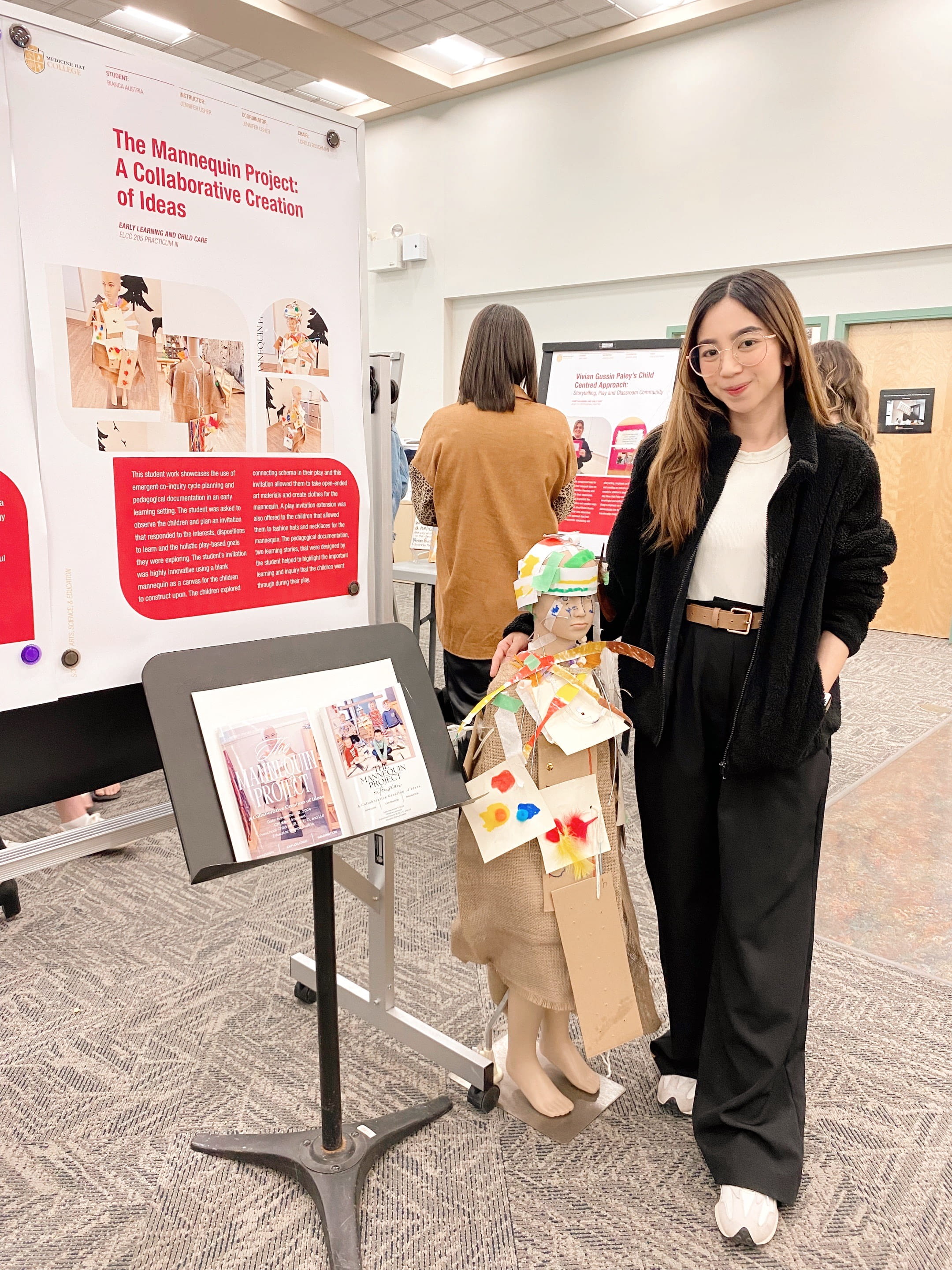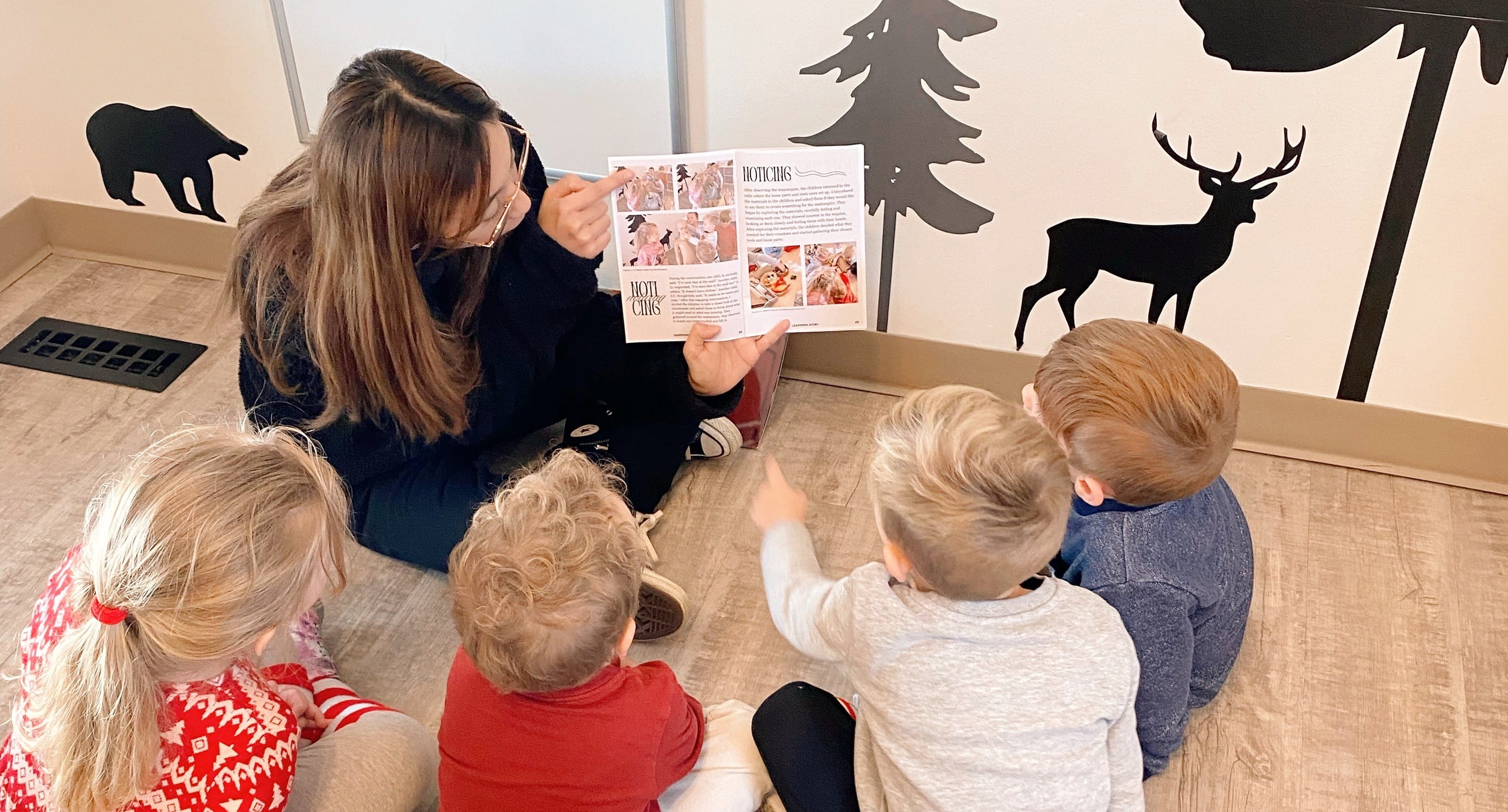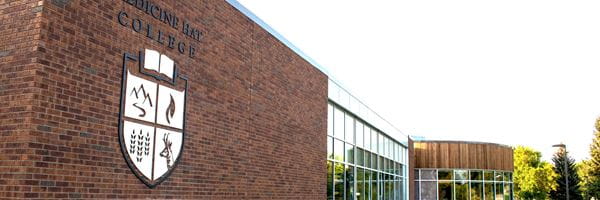Student Spotlight: The Mannequin Project
Early Learning & Child Care Program | Medicine Hat College (MHC)
“Children are capable, curious learners who can lead their own learning when given the right support and environment.”
This is what Bianca Austria, a graduate of MHC’s Early Learning & Child Care (ELCC) program discovered after her third practicum. Equipped with a plan to encourage children to participate in a development activity that resonated with them and their learning goals, The Mannequin Project was born.
Before we dive into student’s project, here’s a quick look at the Early Learning & Child Care program.
A perfect program for those who enjoy working with young children and families, students in the ELCC program learn:
• Child development theory
• Play-based, inquiry-driven learning
• Creating and developing their own child-led hands-on programming
• Relationship building and responsive care
With four practicum placements in real-world early learning environments, students graduate with hands-on experience and the confidence to work in day homes, child care centres, preschools, and out of school care programs.
What is The Mannequin Project and how did it come to be?
In her third practicum, Bianca focused on curriculum development through the cycle of co-inquiry. This method in early childhood education involves observing how children are interacting with their environment and supports deeper learning by offering new tools such as storytelling approaches, building materials, drawing or play invitations that align with the child’s ideas and interests.
Focusing on their natural curiosities, Austria provided a mannequin as a blank canvas for the children to use their creativity and personal experiences to construct upon using open-ended art materials.
 Early Learning & Child Care student, Bianca Austria, poses with her project at the annual Ignite poster presentation
Early Learning & Child Care student, Bianca Austria, poses with her project at the annual Ignite poster presentation
"One thing I learned while working on this assignment is how important close observation is when offering meaningful experiences to children. Since this placement was in a different setting, I had to observe more carefully to understand the children’s interests. I focused not just on what they played with, but how they played,” explains Austria.
By planning learning experiences that were directly aligned with the children’s interests, Austria says their learning was better supported and more meaningful to them.
Using literature and story-telling to encourage conversations, the student says the children began to share their own stories about their travels with their family, demonstrating that the activity resonated with them.
 Bianca reads a story she created for the project to the children in her practicum.
Bianca reads a story she created for the project to the children in her practicum.
What areas of early childhood development did this cover?
Similar to building blocks, puzzles, and crafting, activities like The Mannequin Project help children to understand how things can connect and be separated. By dressing the mannequin, the children worked together to see how their additions helped make something new.
“What I loved about my mannequin project is how emergent it was, driven entirely by the children’s curiosity. I saw how engaged they were throughout the process, not just through their conversations, but also in how they followed through and completed the project. What I loved the most was how they connected everything they created to their own personal experiences,” says Austria.
Strengthening her skills in observation, collaboration, and flexibility, will benefit Austria as she now approaches her career as an early childhood educator.
“I developed stronger collaboration skills by working closely with the educators in my placement, adjusting plans and ideas together to support the project,” says Austria. “Most importantly, I learned to be more flexible, adapting to a different setting and curriculum while still staying true to a child-led, inquiry-based approach. These skills helped me grow as an educator and will continue to guide me in creating responsive and intentional learning environments.”
Why child-led learning creates a deeper educational impact.
“When we take time to observe, listen, and trust children’s ideas, we open the door to deeper learning and stronger connections,” says Austria.
“This project showed that learning doesn’t always have to follow a rigid plan, sometimes the most powerful learning happens when we follow the child’s lead.”
Learn more
Inspired by Bianca’s journey? Explore the Early Learning & Child Care program at Medicine Hat College: www.mhc.ab.ca.

